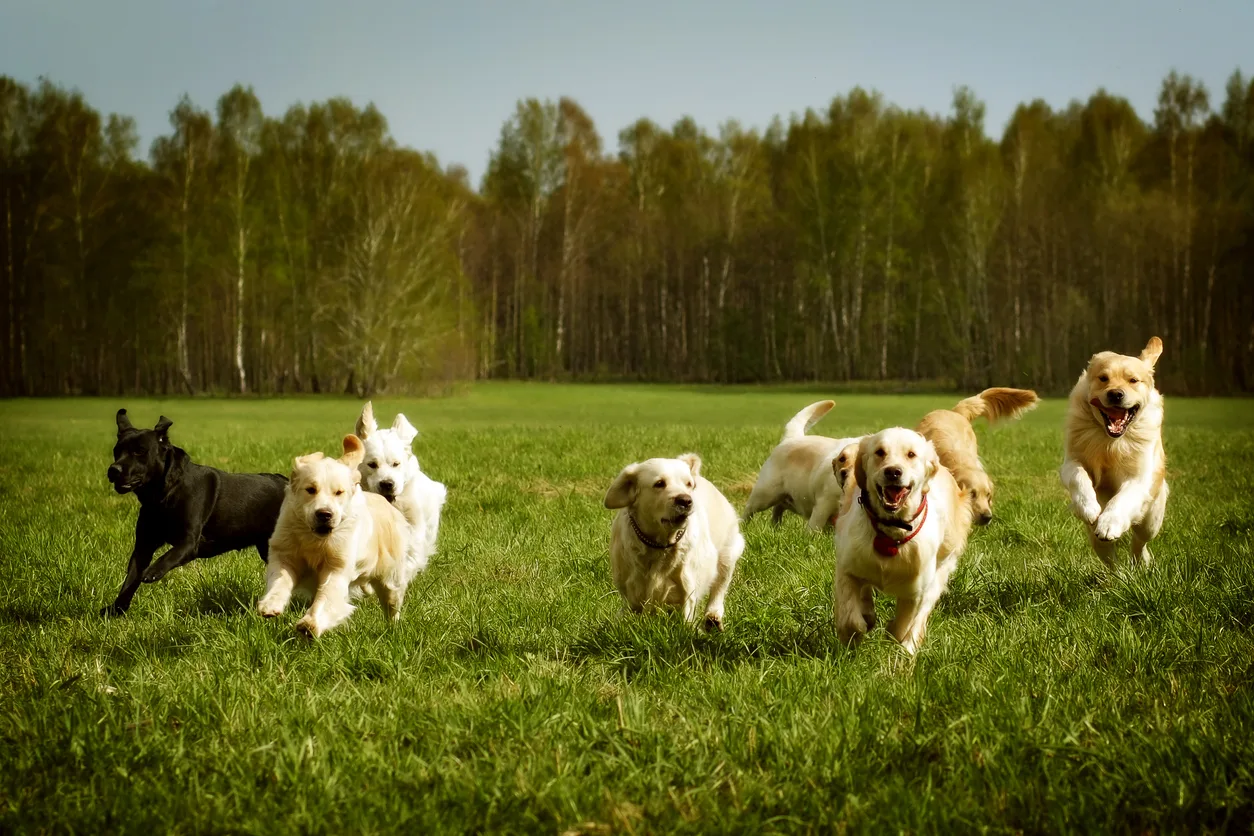While there are tons of people out there who advocate for adoption over pet purchase, it’s completely okay to know what type of pet you want to own, right down to the breed. If you are going to purchase an animal, it’s important to make sure you are purchasing from a reputable and responsible breeder instead of from a backyard breeder or, subsequently, the pet shops who purchase from them.
How To Spot The Difference
Here’s how to know the difference between the good, the bad, and the ugly.
Breed-Specific Breeding Program
Reputable dog breeders typically only sell a small number of breeds – often just one or two. This is because they specialize in the care, grooming, and socialization of the dogs involved, and that takes a significant amount of time and effort.
Responsible breeders are experts in terms of their breed’s specific history, conformation, traits, and overall temperament. They know what to expect, how to train their adult dogs, and how to support the care of new puppies. Steer clear of any “breeder” who claims to have several different dog breeds available at the same time, especially if that number is five or more and they can’t give you references.
Early Weaning
Never, ever purchase a puppy that has been weaned from the mother before the 8-week mark. Puppy mills, pet shops, and backyard breeders are often irresponsible in allowing puppies to leave their mothers too early in order to turn a profit.
A puppy that has left it’s mother and the rest of his littermates too early will lack the social skills usually taught to the litter. This can result in some serious behavior and social challenges later in life. A reputable breeder will not let a puppy leave the mother before the 8 week mark and many will not let the puppies leave until they are 10 weeks old or even older.
“Breed to Improve” Standards, Commitment
The majority of reputable breeders aren’t in it for profit. They truly care about the breed and want to see it continue to thrive. Even though you may pay anywhere from $300 – $800+ for a purebred puppy, that money is used up in proper care.
It is important to remember that a good breeder isn’t pocketing that cash for a rainy day. As a matter of fact, it can cost several thousand dollars for medical testing of the bitch and stud, daily pet supplies and pregnancy support, and whelping boxes. Costs also include initial shots and deworming for the new puppies and having each properly registered and may even include spaying, neutering, and other procedures.
Backyard breeders and pet shops will charge you a high price for a purebred dog with no medical testing or documentation about the parents, the breed, or the registration. They are looking to churn out puppies and make as big a profit as they can. The key red flag here is a high price with the inability to identify how the money is justified.
Screening Puppy Buyers
While puppy mills, pet stores, and backyard breeders often take applications, it’s usually a formality. Unethical breeders don’t generally care about the homes their puppies will be taken to, and are more concerned about whether or not you will be able to pay their fees.
Responsible breeders will do anything and everything to ensure their puppies go to good homes – through the careful screening and evaluation of each individual or family interested in getting a puppy, and asking prospective owners questions (a lot of questions!) to get a better feel for the type of home they will provide. In fact, you may even feel as though your personal life is being pried into though interrogation, but it’s their responsibility and commitment to decide if your home and lifestyle meets the specific qualifications and needs of the puppy.
The breeder should be asking you about your familiarity with the breed in question, and whether or not you’ve ever raised a puppy. They will want to know if you have children, if you work long hours or travel a lot, and how you plan on caring for your new family member. And the list of questions goes on and on!
Puppy Health Guarantees
While there is no way to be 100% certain that an emergency won’t arise, reputable breeders will guarantee the health of your puppy. They often put them through (at a minimum) hip x-ray certifications, canine eye exams, heart defect testing, and STD testing. Sometimes they even have the pups put through genetic testing to minimize the risk of the birth of an unhealthy puppy.
If there is a major health issue that should have been uncovered, your breeder will likely take the dog back. A responsible breeder will also take the dog back if you end up with your own health issues or have a reason you can no longer care for it. They’d much rather take the dog back than see it go to a shelter.
If you become attached to the puppy, and it develops health issues, some breeders will make arrangements for you to permanently foster. This is when the dog stays with you, but the breeder providers longer-term support for its care. It can be an excellent option for health issues beyond the breeder’s control.
Spaying and Neutering
Reputable breeders will almost always ask you to sign a contract promising to have your puppy spayed/neutered when they are at the correct age. You may even be required to submit proof later. This is because there aren’t really many people who qualify to act as breeders, so they don’t want puppies leaving for homes that plan to breed them for fun or profit.
A limited number of breeders adopt out dogs specifically for the purposes of breeding. If you’re trying to become a breeder yourself, understand that most breeders will want extensive information from you before they agree. They may want you to prove you’ve done your research, have vet references, and have the finances to support such an endeavor. If they say no, don’t be insulted; they’re just doing what they can to prevent unwanted animals.
Visiting Puppies and Parents
Reputable breeders want to build relationships with their buyers from the start. They can and should let you meet the parents. Meeting them will give you an idea of what your puppy will look like when he is older. You’ll also get an idea as to what your puppy’s temperament may be like.
The size of the parents often dictates the size the puppy will grow to be. In many instances, the mother will be on site but the stud (father), will not be. Even if this is the case, the breeder should be able to show you pictures and tell you about his attributes.
Stay away from breeders who won’t let you see the puppies in the environment in which they are being raised. Reputable breeders will keep the babies and the mother together. Backyard breeders may separate them too soon, damaging their ability to properly socialize.
Puppy Availability
Does the breeder you are working with always have dogs available and ready to go to a good home? This should be a huge red flag. Reputable breeders usually have a waiting list of people waiting for puppies. As a matter of fact, they won’t breed their dogs until they have enough good homes ready and waiting for an entire litter. Backyard breeders and pet stores are constantly breeding and have dogs available. When looking for a puppy, patience is key.
Contact Golden Meadows Retrievers
Ready to start looking for a companion? Do your homework and choose a reputable breeder before searching for your next puppy. Doing so will help to promote responsible breeding practices while ensuring fewer unwanted pets lose their lives after being placed in shelters or bad homes.

